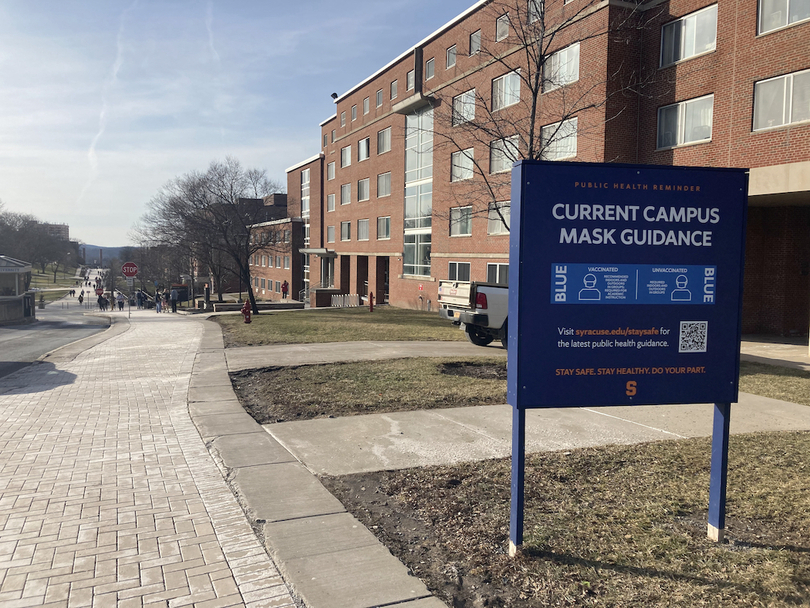SU to return to ‘BLUE’ masking level effective Tuesday amid rising COVID-19 cases

Kyle Chouinard | Asst. News Editor
Syracuse first moved to the "BLUE" level on Feb. 21 and was on this alert level until March 8.
Get the latest Syracuse news delivered right to your inbox.
Subscribe to our newsletter here.
Syracuse University will return to the “BLUE” COVID-19 alert level effective April 19, according to a campus-wide email from Vice Chancellor Mike Haynie on Monday morning.
The decision comes amid an uptick of cases on campus and in Onondaga County in an effort to minimize risk during end of the semester exams, activities and Commencement, the email reads.
SU moved to the “YELLOW” COVID-19 alert level on March 8.
Masks will be required during academic instruction and in other select locations, including libraries, along with select activities that will be indicated with signage.
Masks will continue to be strongly recommended indoors across campus and outdoors when in the presence of others, but people who are not fully vaccinated must continue to mask at all times in these situations.
The recommendations come as the U.S. Centers for Disease Control and Prevention identified Onondaga County among several counties in central New York that have seen a rise in cases due to new subvariants of COVID-19.
While these subvariants do not appear to cause heightened levels of illness for vaccinated people, they are more contagious, according to the CDC. Haynie wrote that this is likely why there has been an uptick in cases on campus over the past 10 days even though there has not been a heightened level of symptomatic illness for students or employees of SU.
The mandatory five-day isolation period for individuals who test positive for COVID-19 under New York state guidelines has led to increased disruptions to the academic experience due to the rise in cases, the email furthered.
All asymptomatic students, employees and families of the university can get tested for COVID-19 at the Kimmel Dining Hall testing center.
Students experiencing symptoms of COVID-19 are advised to stay home and call the Barnes Center at The Arch at 315-443-8000 before visiting to receive care. Employees experiencing symptoms of COVID-19 are also advised to stay home and contact their primary care physician.
Next steps for people who test positive for COVID-19 are available on the university’s “Stay Safe” website.




